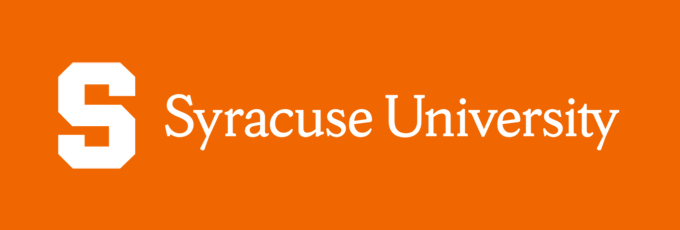The future of data science is rapidly evolving into a lucrative industry in need of innovative and creative individuals. If you want to pursue a cutting-edge career in the field, you can earn an undergraduate, master’s, or doctoral level degree in data science from the Syracuse University School of Information Studies.
You’ll graduate with skills in understanding and analysing data for a successful career in data science. You don’t need a technical background to pursue a career in data science at Syracuse. If you have a background in business, engineering, humanities, or the natural and social sciences, you’ll be well-prepared for their programme and for a future in this field.
We live in a time where 1.7 megabytes of data are generated each second for every person on Earth. Data can offer a wealth of opportunities, from empowering organisations to make strategic business decisions to helping them identify new opportunities.
Data scientists wade through troves of data before structuring, interpreting, and presenting it in a meaningful way. They also tackle issues that arise with the work, which includes privacy issues and leaks.
However, harnessing the power of data is no easy feat. Analysing data requires deep analytical and technical expertise. The ability to leverage it while making informed decisions requires strong communication and management skills, bolstering the need for a robust education.
Syracuse University’s School of Information Studies (iSchool) agrees. In fact, across each of our academic offerings, the iSchool’s main goal is to examine the roles data, technology, and information play, not just in business, but also in society. Our efforts haven’t gone unrecognised. The Syracuse iSchool is currently a global leader in advancing knowledge while developing creative, thoughtful, and technically capable leaders in the information field through a range of excellent pathways.

Source: Syracuse University, School of Information Sciences
The Applied Data Science Master’s Degree is a prime example — it’s also a programme that produces experts in the field in as little as a year. Our curriculum combines a primary core, a secondary core, and various electives to ensure you have the opportunity to customise your path to mastery.
You can choose from three comprehensive tracks: Data and Business Analytics, Language Analytics or Data Pipelines and Platforms. The first track provides you with a deep dive into the business applications of data science. The second focuses on unstructured language data. The third explores data collection and data engineering. Your future will be bright with outstanding outcomes, regardless of the track you select.
Through the Applied Data Science Master’s Degree, you will gain key competencies that will set you apart in a competitive talent pool. Last year’s class is a testament to this — the average starting salary in 2020 was 86,625 US dollars.
Developed with insights from leading employers like Microsoft and EY, our programme will prepare you to enter the workforce ready to:
- Describe a broad overview of data science’s major practice areas
- Collect and organise data
- Identify patterns via visualisation, statistical analysis, and data mining
- Develop data-based alternative strategies
- Develop action plans to implement the business decisions derived from the analyses
- Communicate data effectively and its analysis for managers, IT professionals, programmers, statisticians and other relevant colleagues
- Synthesise the ethical dimensions of data science practice
Opportunity for free Data Science virtual event by top US university in the field
Syracuse University is passionate about data science — so much so that we have dedicated time and resources to spread awareness on its premise and applications. The iSchool’s Data Science Day is a hybrid (in-person and virtual) two-day event that will feature presentations and panel discussions from full-time faculty members, part-time adjuncts and graduate students.
“We want to show students, alumni, as well as prospective students how data science is used in many varied situations,” says Jeff Saltz, Programme Director for the Applied Data Science Master’s Degree at the iSchool. “Data Science Day will enable the iSchool to show the many different ways that data science is and might be applied in society.”
While Saltz will cover the basics, other noteworthy presentations include “The Use of Data Science to Better Address COVID-19,” with Thibaut Jombart, Associate Professor at Imperial College London and the WHO analytics team; “What is Visual Analytics” with iSchool Associate Professor Jeffrey Hemsley; and/or “Applied Deep Learning” with iSchool Assistant Professor Daniel Acuna, who will discuss emerging machine learning techniques.
If you can’t join us on Data Science Day, you can still register and receive a recording of the event, as well as details about the iSchool.
Follow Syracuse University on Facebook, Instagram, Twitter and YouTube













